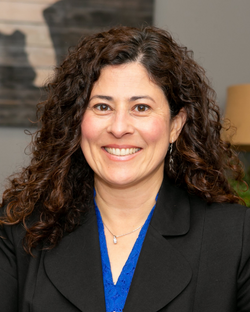California Lawyers Association
CLA Models Diversity and Inclusion
February 2023
By Olga Diaz
Associate Executive Director of Inclusion, Outreach, and Strategic Initiatives

California Lawyers Association has established a first-ever Diversity, Equity, and Inclusion appointments policy to ensure that leadership at every level of our organization reflects the racial and gender diversity of our state. This board-driven and unanimously board-approved policy is a substantive and quantifiable commitment to DEI.
CLA has an explicit mission of promoting excellence, diversity and inclusion in the legal profession and fairness in the administration of justice and the rule of law. We make a year-round commitment to this mission and work not only to acknowledge but to elevate the visibility of our diverse members. This year, you will see a greater emphasis on cultural heritage and social awareness content in our eNews, on the CLA website, on CLA social media platforms and even in our workshops.
Why did we do this? At CLA, actions matter. Our members matter. We have always been eager to showcase the diversity of our members and to ensure that all members and volunteers feel seen, heard, and valued. We do this because it helps us feel connected to each other and more understood and included by our peers. Psychologists consider our modern desire to feel “seen” a basic human need that allows others a chance to meet our needs and vice versa. We see you. We celebrate you. We are you.
Even more so, we also do this because exposure to a wide range of diverse cultures, identities, languages, foods, music and religions will actually help you be more selfless. If you are already engaged in CLA’s DEI work, thank you. If you are skeptical, read on, then join in.
Although DEI work is often considered subjective and emotional, there is also a science to it. We each carry with us biases formed through our own lived experiences. It is impossible to grow up without learning social norms from your environment. The science of bias has been studied by researchers for decades, and massive data sets offer fascinating insight into attitudes and stereotypes that continue to be embedded in our daily interactions. Learned behaviors and stereotypes are, in large part, the driving force behind social behaviors guiding who we approach or avoid, and who is hired or promoted.
The predominant narrative on bias is that cultural forces influence our implicit stereotypes and prejudices (i.e., race/ethnicity). Growing evidence suggests that implicit stereotypes and prejudices are a function of the environment in which an individual is immersed (i.e., social groups).
The good news is that reducing biases is possible. Research on implicit bias suggests that friendships with people of different cultures, gender identities or abilities lead to a more favorable attitude toward those groups, and in some cases, a preference. Greater long-term exposure to diverse populations decreases both explicit and implicit prejudice, reduces support for anti-diversity policies and political candidates, leads to more personal contact with diverse individuals, and increases cross-cultural knowledge in general. In other words, interaction with people from an ancestry other than our own leads to more altruistic behavior toward that group. Exposure leads to understanding and inclusion.
This reason validates the ongoing acknowledgment and uplifting of our diverse heritage and awareness months. Beyond the enthusiastic acknowledgment and joyful sharing about the cultures and identities we have in California, and among our membership, we hold ourselves to the highest standard of accountability. We proudly model our mission to promote excellence, diversity and inclusion in the legal profession and fairness in the administration of justice and the rule of law.
